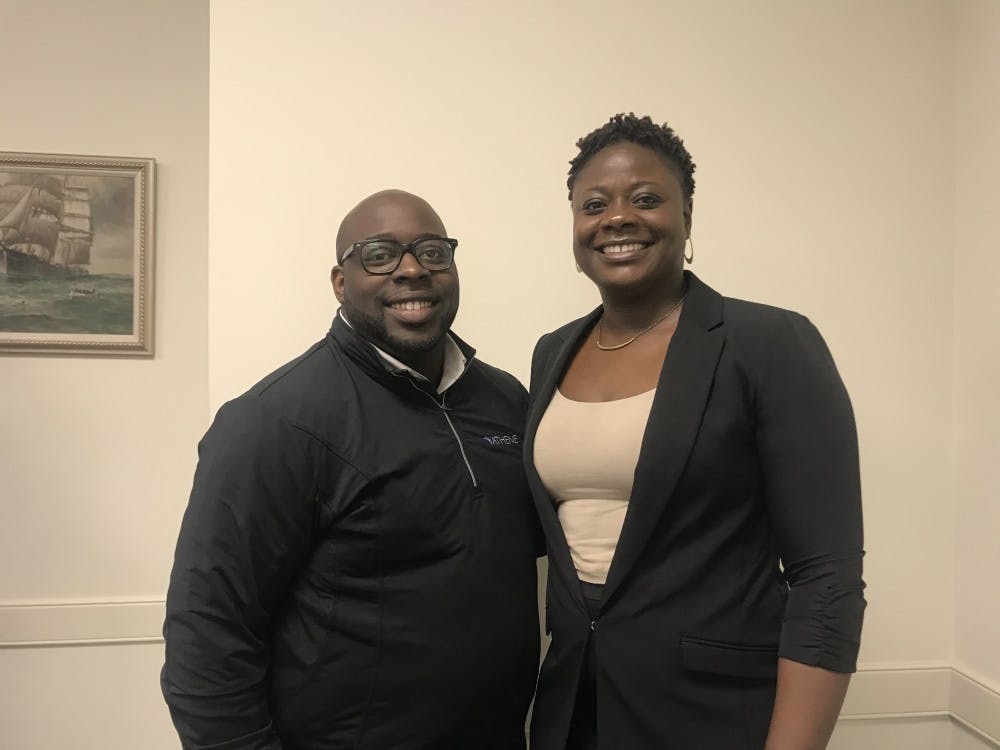Keep him busy, know his friends and surround him with good examples.
That's what Black single mothers told Debra Johnson about how they successfully raised Black boys. Johnson, director of communications for the Washington State Department of Children, Youth and Families, outlined these tactics along with many others in her video titled “Why I Won’t Teach My Son ‘Black Codes.’”
The video, published by the New York Times video series "Conception Season 2" in October 2018, details Johnson’s experiences and struggles with raising a Black son. Johnson gave birth to her two-year-old son Dashur in February 2017, and after seeing an abundance of news coverage about Black men killed by police around that time, she was inspired to share her perspective of motherhood with the NYT.
Johnson showed the video during her lecture at UNC on Tuesday, which was co-hosted by the UNC School of Social Work and the Carolina Black Student Caucus and was sponsored by the Spears-Turner Professorship.
In the video’s dialogue, Johnson said she doesn’t want to teach her son ‘Black codes’ because she wants him to be himself freely and unapologetically. The term ‘Black codes’ refers to the unofficial rules of behavior that Black parents teach their sons on how to conduct themselves in the public sphere. Examples of ‘Black codes’ include telling Black boys not to wear hoodies and to make sure their hands are visible if they are stopped by a police officer, said Johnson.
“Debra’s life has watched these codes unfold,” said her brother, Robert Johnson. “She watched her little brother get pulled over by police in the school parking lot at 10 years old and searched and thrown on the hood of the car.”
During the lecture, Johnson explored the difference between how she views her son in the home and how society chooses to view him, highlighting that the existence she hopes for her son does not match up with the reality of Black existence in the U.S.
“This is how I’ve always envisioned of being able to talk about Dashur in a public space — allow this little Black boy to exist in your living room and to see him grow up, to humanize him,” Johnson said. “Because when we see the stories of Black men who have been maligned in the public space at the national level, we see them as adults. We don’t get to see their childhood photos.”
To create a space in which Black boys can be themselves as innocent children, Johnson advised Black parents to have honest conversations with white teachers and parents about how to engage with children of color. She also encouraged Black parents to use language with their children that empowers them and validates their self-worth.




